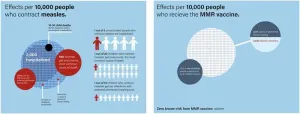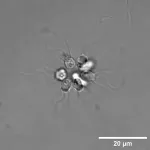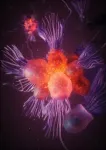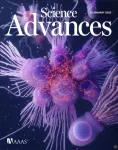(Press-News.org) In a recent essay, pediatrician-scientist Peter Hotez proposes a focus on local data, improved benefit-risk communications, actively countering health disinformation, and state-level action to address antivaccine sentiment in the U.S.
Anti-vaccine sentiment isn’t going away any time soon. In a new opinion article published January 8 in the open-access journal PLOS Global Public Health, Prof. Peter Hotez from Baylor College of Medicine, outlines key actions to stem the momentum of anti-vaccine advocates in the U.S. over the next five years.
Anti-vaccine activities in the U.S. transformed to become a politically charged movement during the COVID-19 pandemic as calls for health freedom characterized partisan political activism. In his recent opinion piece, Hotez argues that, as COVID-19 hospitalizations and deaths decline, anti-vaccine attitudes have not decreased but merely shifted—toward childhood vaccinations. Vaccine hesitancy among parents for childhood vaccines is likewise politically divided, and the country has seen re-emergence of multiple preventable childhood illnesses, including whooping cough and measles. Recently, even polio has been detected in wastewater sampling.
Hotez warns that without urgent action, these isolated outbreaks of childhood illnesses may become regular breakthrough epidemics. He outlines short-term steps for researchers, policymakers, and communicators, including updating local-level data to identify pockets of vaccine hesitancy and focusing on state-level actions to maintain vaccination coverage. In addition, he calls for broader efforts to accurately communicate the risks of preventable illnesses and combat disinformation in real time. Instead of relying on the efforts of individual scientists to correct false information, Hotez proposes that a government-established credible website to debunk vaccine myths in easy-to-understand language.
The authors add: “Our vaccine ecosystem is fragile and the troubling rise in cases of measles, pertussis, and other illnesses requires enhanced measures to counter antivaccine activism. Critical steps include mapping of hotspot counties with significant vaccine exemptions, improved benefit-risk communication graphics, exposing disinformation, and implementing sound vaccine policies in state legislatures.”
Press Preview: https://plos.io/4gyfYwh
In your coverage please use this URL to provide access to the freely available article in PLOS Global Public Health: https://journals.plos.org/globalpublichealth/article?id=10.1371/journal.pgph.0004020
Citation: Hotez P (2025) It won’t end with COVID: Countering the next phase of American antivaccine activism 2025–29. PLOS Glob Public Health 5(1): e0004020. https://doi.org/10.1371/journal.pgph.0004020
Author Countries: United States
Funding: The author received no specific funding for this work.
END
Countering the next phase of antivaccine activism
2025-01-08
ELSE PRESS RELEASES FROM THIS DATE:
Overcoming spasticity to help paraplegics walk again
2025-01-08
Electrical stimulation of the spinal cord is a promising strategy for reestablishing walking after spinal cord injury, recent studies show. But for patients suffering from muscle spasms, the stimulation protocols have a limited effect due to the unpredictable behaviour of involuntary muscle stiffness related to spasticity. Muscle spasticity affects almost 70% of spinal cord injured patients
Now, scientists at EPFL, Università San Raffaele and Scuola Sant’Anna have found a promising way to address and reduce muscle spasticity in patients with incomplete spinal cord injury. ...
Tiny microbe colonies communicate to coordinate their behavior
2025-01-08
A new study published in Science Advances reveals evidence of electrical signaling and coordinated behavior in choanoflagellates, the closest living relatives of animals. This elaborate example of cell communication offers key insights into the early evolution of animal multicellularity and nervous systems.
Researchers from the Burkhardt group at the Michael Sars Centre, University of Bergen, uncovered a remarkable diversity of behaviors within the rosette-shaped colonies of the choanoflagellate Salpingoeca rosetta - and the small organisms held even more surprises. “We found communication among the cells of the colonies, which regulates shape and ciliary beating across the rosette,” ...
Researchers develop new technology for sustainable rare earth mining
2025-01-08
Ion-adsorption rare earth deposits (IADs) are primary sources of heavy rare earth elements (HREE), supplying over 90% of the global demand for HREE. However, the current ammonium-salt-based in-situ mining technique has led to severe environmental impacts.
To facilitate sustainable REE mining, Professors ZHU Jianxi and HE Hongping’s team from the Guangzhou Institute of Geochemistry of the Chinese Academy of Sciences (CAS) has developed a green and efficient electrokinetic mining (EKM) technology.
Their work was published in Nature Sustainability on Jan. 6, 2025.
To address the challenges of sustainable and efficient REE extraction, ...
Words activate hidden brain processes shaping emotions, decisions, and behavior
2025-01-08
In an unprecedented new study in the journal Cell Reports, researchers have shown neurotransmitters in the human brain are released during the processing of the emotional content of language, providing new insights into how people interpret the significance of words.
The work, conducted by an international team led by Virginia Tech scientists, offers deeper understanding into how language influences human choices and mental health.
Spearheaded by computational neuroscientist Read Montague, a professor of the Fralin Biomedical Research Institute at VTC and ...
Understanding survival disparities in cancer care: A population-based study on mobility patterns
2025-01-08
A recent study published in Health Data Science, led by Dr. Fengyu Wen from the Institute of Medical Technology at Peking University Health Science Center and Professor Luxia Zhang from the National Institute of Health Data Science at Peking University, reveals significant survival disparities among cancer patients depending on their mobility patterns for medical care.
The study analyzed data from over 20,000 cancer patients in Shandong Province, China, to assess the impact of intra-city, local center, and national center mobility patterns on survival rates. Patients who traveled to local or national healthcare centers had higher five-year survival ...
Common sleep aid may leave behind a dirty brain
2025-01-08
Getting a good night’s sleep is a critical part of our daily biological cycle and is associated with improved brain function, a stronger immune system, and a healthier heart. Conversely, sleep disorders like insomnia and sleep apnea can significantly impact health and quality of life. Poor sleep often precedes the onset of neurodegenerative diseases and is a predictor of early dementia.
New research appearing in the journal Cell describes for the first time the tightly synchronized oscillations in the neurotransmitter norepinephrine, ...
Plant cells gain immune capabilities when it’s time to fight disease
2025-01-08
LA JOLLA (January 8, 2025)—Human bodies defend themselves using a diverse population of immune cells that circulate from one organ to another, responding to everything from cuts to colds to cancer. But plants don’t have this luxury. Because plant cells are immobile, each individual cell is forced to manage its own immunity in addition to its many other responsibilities, like turning sunlight into energy or using that energy to grow. How these multitasking cells accomplish it all—detecting threats, communicating those threats, and ...
Study sheds light on depression in community-dwelling older adults
2025-01-08
January 8, 2025—Marked variation in the prevalence of depression was found in a multisite sample of community-dwelling older adults in the United States reports a study by Columbia University Mailman School of Public Health. Until now, few studies, have examined the frequency of depression in community-dwelling older adults in the U.S. The study is published in the Journal of American Geriatrics Society.
Of the 2,900 participants studied, 6.2 percent had depression. Older adults who had a negative history of depression or had annual household incomes of $50,000 or greater were at significantly decreased ...
Discovery of new class of particles could take quantum mechanics one step further
2025-01-08
PROVIDENCE, R.I. [Brown University] — Amid the many mysteries of quantum physics, subatomic particles don’t always follow the rules of the physical world. They can exist in two places at once, pass through solid barriers and even communicate across vast distances instantaneously. These behaviors may seem impossible, but in the quantum realm, scientists are exploring an array properties once thought impossible.
In a new study, physicists at Brown University have now observed a novel class of quantum particles called fractional excitons, which behave in unexpected ways and could significantly ...
Cost-effectiveness of a polypill for cardiovascular disease prevention in an underserved population
2025-01-08
About The Study: The results of this economic evaluation suggest that cardiovascular polypill treatment (single pill containing a statin and 3 half-standard dose antihypertensives) could be a high value intervention for a low-income, majority Black population with limited access to health care services. It could additionally reduce health disparities.
Corresponding Author: To contact the corresponding author, Ciaran N. Kohli-Lynch, PhD, email ciaran.kohli-lynch@northwestern.edu.
To access the embargoed study: Visit our For The Media ...






